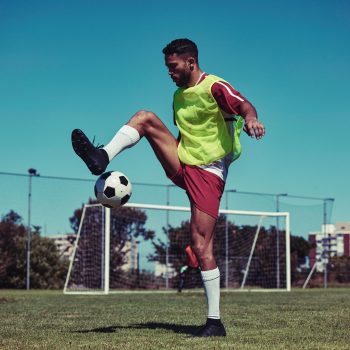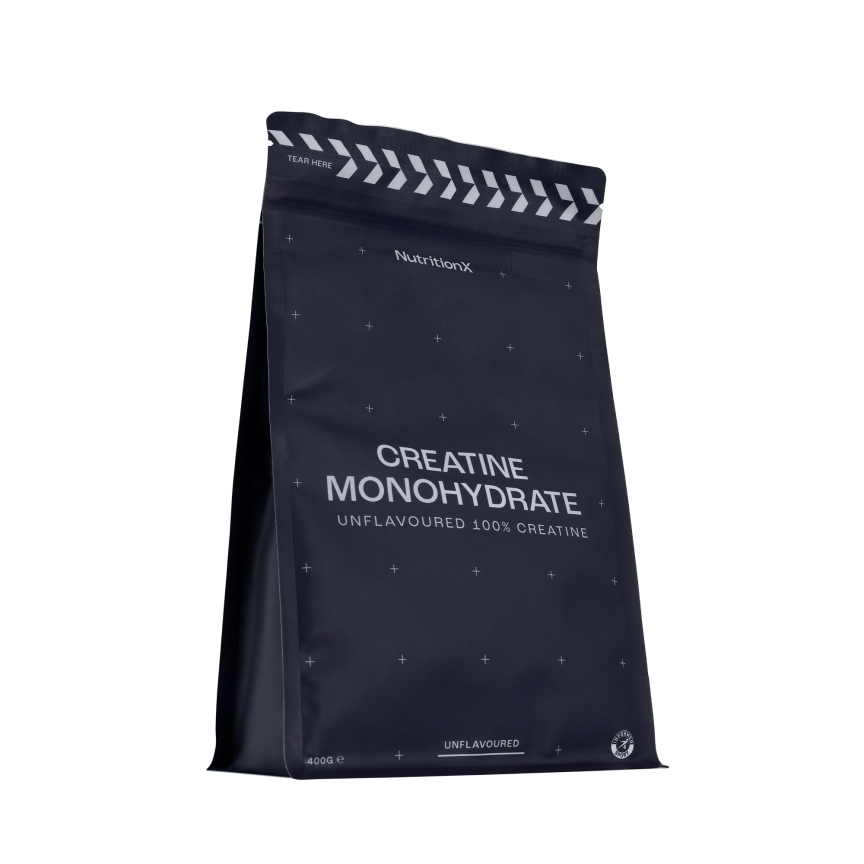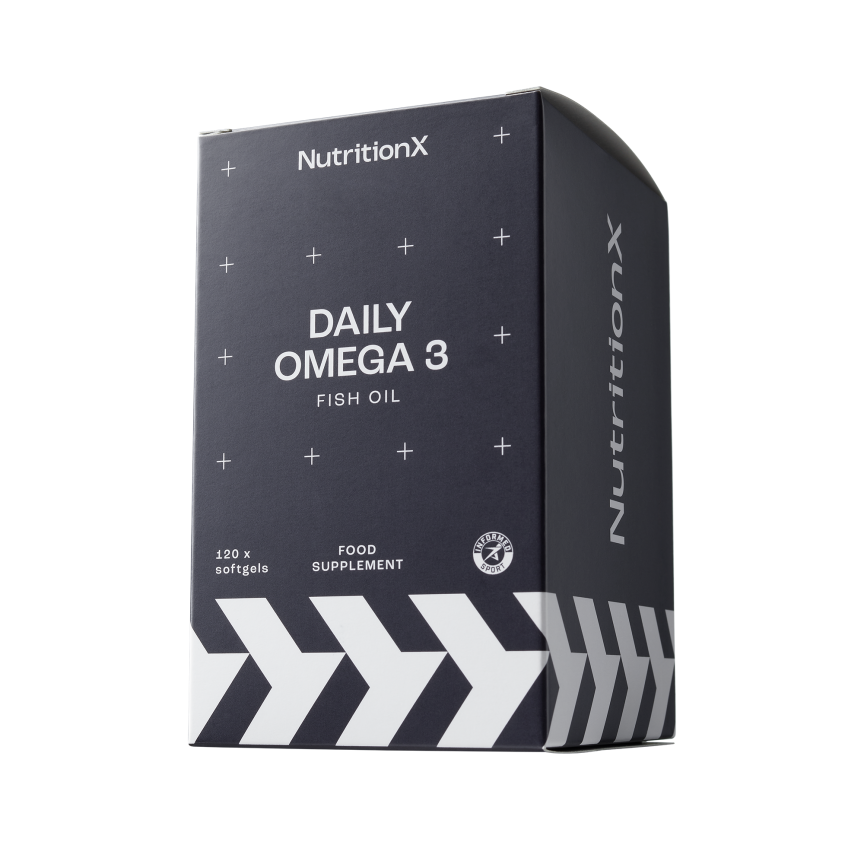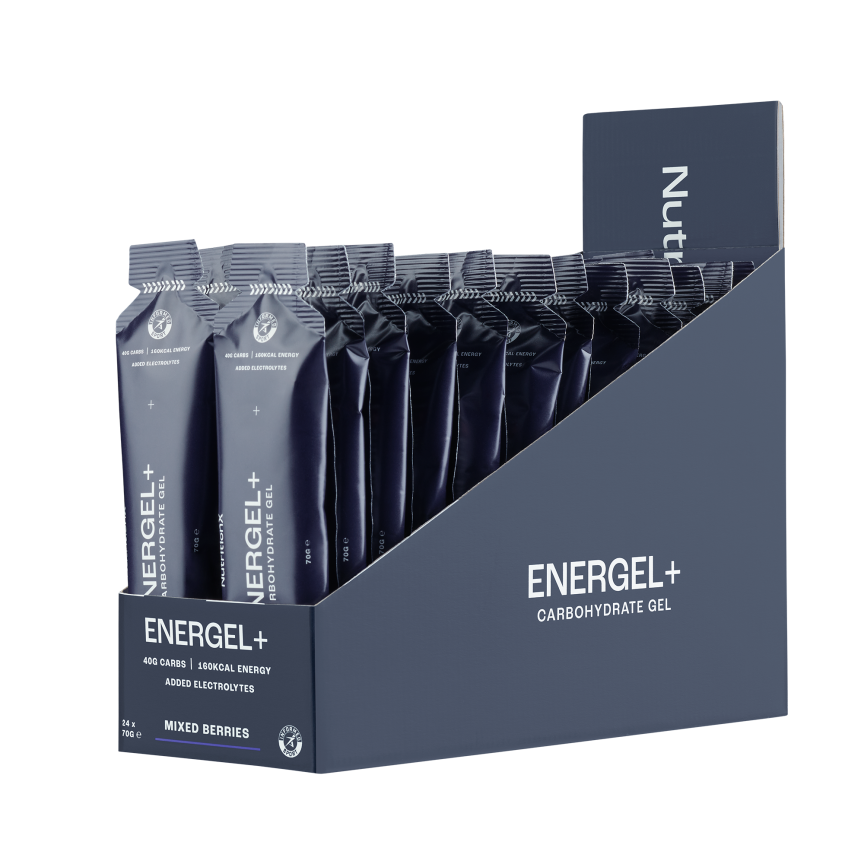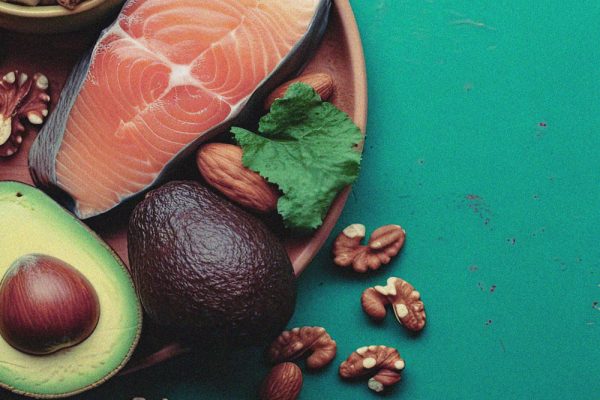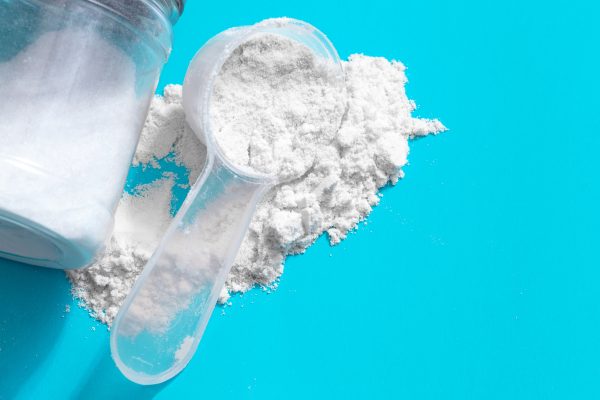The use of supplements is common practice within the world of football, helping footballers to achieve their nutrition requirements and meet specific health and performance goals. But what supplements do football players take? And what are the best supplements for football players?
We’ve asked our Performance Nutritionist, Monica Hernandez, for her top tips when it comes to football-specific nutrition, and what the pros do to up their game.
Should football players take supplements?
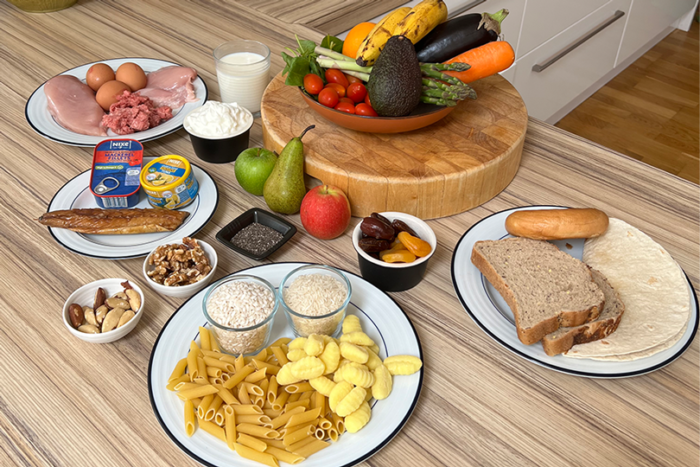
Football players should take supplements if they’re looking to support an already solid nutrition strategy. Supplements should always be used by professional athletes to support a ‘food-first’ approach to a performance-maximising nutrition strategy; not relied upon solely to improve performance, or hit nutrition goals, by themselves. Players should look to gain their daily macronutrient and micronutrient requirements from food sources in the first instance, and use supplements to ‘add value’ to an already healthy diet.
What are the best supplements for football players?
Football, like many sports, is a high-intensity sport which requires a huge amount of energy. As a result, energy supplements such as pre-workout shots and energy gels are a great idea to help football players maintain speed and concentration on the pitch. Hydration supplements, such as isotonic sports drinks, are also important due to the intensity and duration of the game, whilst recovery supplements such as protein shakes, collagen shots and protein bars, can help to ensure that injury doesn’t hamper performance. Creatine monohydrate can help to improve muscle power and strength for football players, too.
ARE SUPPLEMENTS IMPORTANT FOR FOOTBALL PLAYERS?
Supplements can help footballers optimise their performance on the pitch, as well as help to protect them against injury and illness.
Football is a demanding sport consisting of a combination of low-moderate intensity exercise and high-intensity periods during the game. If energy and nutrient requirements aren’t adequately met, then performance can be impacted, and players can become more susceptible to injury and illness. Supplements can therefore be used as a way of optimising nutrition to maintain physical and mental performance, as well as to promote recovery and overall health; specially during a congested schedule.
Find out more about football nutrition strategies, in our dedicated X-Change paper.
How do supplements help to improve football performance?
Whilst supplements alone won’t necessarily improve performance for footballers on the pitch, they can help to ensure that a footballer’s energy, hydration and recovery needs are met; supporting a nutrition strategy to ensure that they’re not falling short of the requirements demands of their body for this challenging sport. Football supplements can support with energy levels both before and during a game or training, ensuring dehydration and cramps don’t impact performance, and supporting with muscle recovery after an intense match or training session.
WHAT ARE THE BEST ENERGY SUPPLEMENTS FOR FOOTBALL PLAYERS?
High-carbohydrate supplements taken before and during a game can be beneficial for players looking for an added energy boost, helping to maintain energy and concentration during the match. These include:
- Energy Gels for Football
An energy gel, like Nutrition X’s Energel+, is a great option for footballers to take around 30 minutes before kick-off and/or at half-time. Energel+ provides fast-acting carbohydrate-based energy, and in a sport where fatigue can be a major stumbling block thanks to the duration and intensity of a game, taking an energy gel can help to keep potentially performance-limiting fatigue at bay. Energel+ also contains key electrolytes commonly lost through sweat - important for reducing chances of muscular cramps.
- Isotonic Sports Drinks for Football
For footballers, an isotonic sports drink like HydraFuel, taken at half time, will support both energy and hydration levels mid-match. HydraFuel’s high carbohydrate content and unique blend of key electrolytes, such as sodium and magnesium, works to help maintain power, speed and concentration during a game; helping to keep you going at a high intensity for longer.
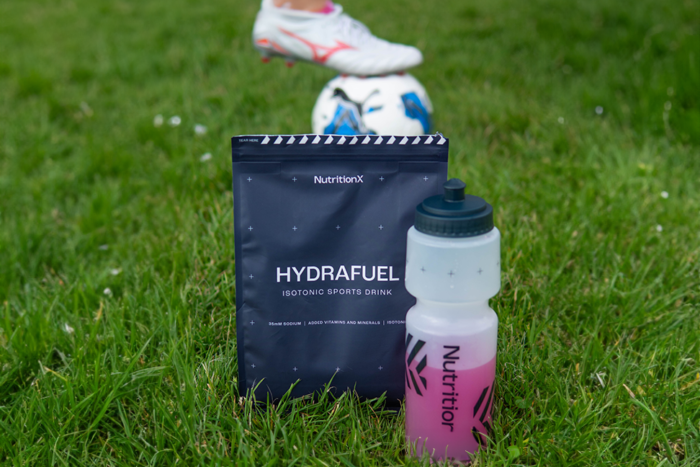
- Caffeinated Pre-Workout Shots for Football
A caffeine supplement, such as the Nutrition X Xplode energy shot taken 30-45 minutes before the kick-off, can also help footballers reduce the perception of fatigue and improve cognitive function during a match; potentially helpful for players that want to improve their abilities when it comes to sprints, running distance, decision making and passing accuracy.
WHAT ARE THE BEST HYDRATION SUPPLEMENTS FOR FOOTBALL PLAYERS?
Having a solid hydration strategy before and during a game is vital to player performance, as dehydration can make you fatigue faster. Footballers should focus on maintaining a well-hydrated state both before and during exercise, and look to replace electrolytes lost through sweat after. Supplements, such as sports hydration drinks, are a great way of doing this effectively.
- Hydration drinks for football
Hydration drinks like Hydra 10 contain the sodium, magnesium and vitamins needed to replenish key minerals and fluids in the body. These electrolytes are commonly lost through sweat - a natural side-effect during a high-intensity match or training - and so replenishing these can help to reduce the chance of muscular cramps. Take Hydra10 before, during or after an intense game or training to maintain hydration levels.
When on-the-go, Hydra+ hydration tablets are also a great hydration drink option for footballers. Formulated to offer fast-acting hydration at a moment’s notice, Hydra+ effervescent hydration tablets are designed to dissolve quickly in water to give you a fast-acting hydration boost, also containing key electrolytes lost through sweat to help prevent muscle cramps.
WHAT ARE THE BEST RECOVERY SUPPLEMENTS FOR FOOTBALL PLAYERS?
There are several supplements that can work alongside a solid nutrition strategy to support a football player’s recovery, such as creatine monohydrate, whey and casein protein, collagen protein and Omega-3. All play an important role in supporting muscle recovery and maintaining joint and tendon health, helping to keep players on the pitch.
Omega-3 supplements should be considered as a recovery aid to footballers, as their anti-inflammatory properties can help to modulate the inflammatory reaction. This can be particularly beneficial during intense training and match schedules when recovery time is short.
What is the best protein powder for football players?
Whilst protein can indeed be consumed through food sources, footballers should consider the intake of a slow-release casein protein supplement such as Nighttime Protein. Taking casein before bed is proven to optimise muscle protein synthesis - the rebuilding of muscle tissue- overnight thanks to slower digestion, increasing amino acid uptake. Classic whey-based supplements, such as our best-selling Big Whey protein powder, and our new Clear Whey protein, are also great to integrate into any football nutrition strategy to ensure that protein goals are adequately met each day. For players that sometimes lose their appetite after exercising, the use of protein bars such as the Pro X protein bar could help them to recover adequately after heaving training or a match; also perfect for keeping in your training bag for protein on-the-go. Our gym bag friendly Protein Whey Shot is also great for this purpose.
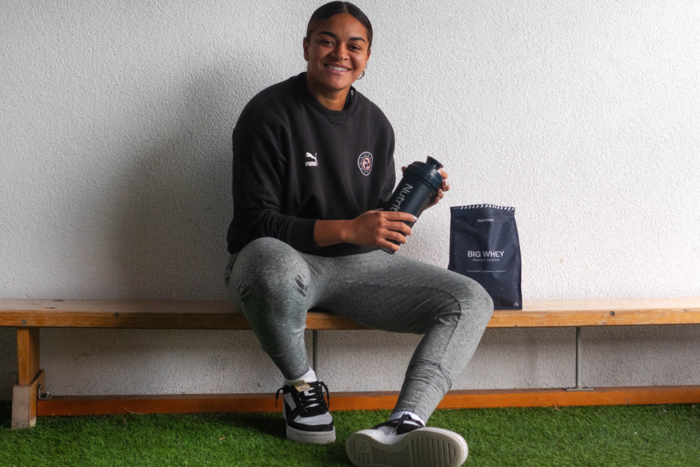
Should footballers take collagen?
The short answer is yes! Collagen protein supplements like our Repair Shot are fantastic for not only supporting joint and tendon injury recovery, but for helping to prevent injury to joint and tendon tissue; important for sports such as football where injuries of this nature are common. Containing 20g of collagen protein per shot, the Repair Shot is designed to stimulate collagen productions within joints to support injury recovery; ideal when taken 30 minutes prior to exercise.
Do football players need creatine?
In a nutshell, creatine monohydrate is used in the body to produce energy, providing muscles with the energy they need for intense bouts of exercise; especially during periods when the priority is to improve anaerobic power and enhance muscle adaptations, such as during pre-season. Whilst creatine can be consumed through diet, such as red meat and fish, it’s often difficult to get enough of it through food to adequately support performance - which is where a creatine supplement comes in.
Creatine monohydrate has been shown to help maximise muscle capacity as well as improve lean body mass and strength with training, making it a great supplement for footballers to consider. Consuming it as part of your recovery strategy can also help the body to replenish muscle glycogen stores.
Should I take creatine before football?
We suggest taking creatine shortly after training and - if needed- a second serving either after a meal, with water or a shake.
Are all supplements legal in football?
As with all sports, football players have to be very careful that any supplement they’re taking doesn’t contain any substances listed on the World Anti-Doping Agency banned substance list. The safest way to do this is to choose a product that is Informed-Sport certified - meaning it has been rigorously tested for traces of any potentially banned or harmful substances - and batch-tested. We are proud to say that our full range of football supplements are both batch-tested and Informed Sport certified, giving football players the peace of mind they need.
Discover our range of scientifically-formulated football supplements.



